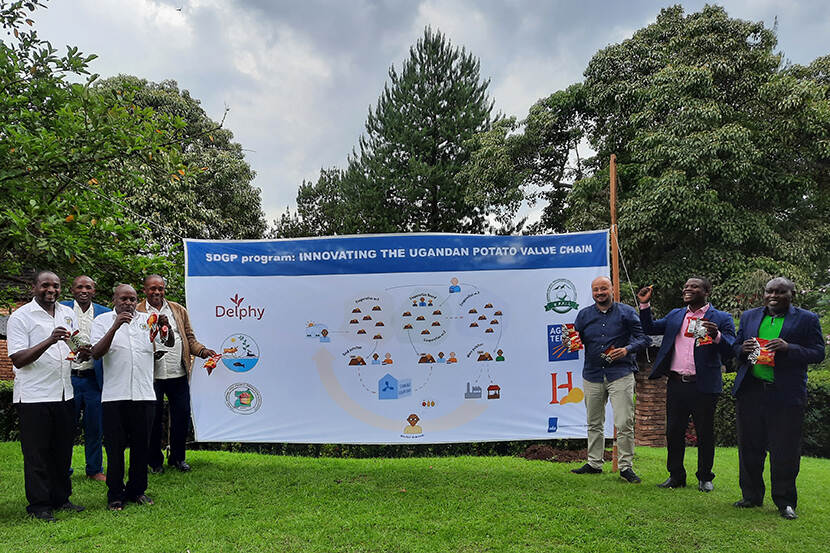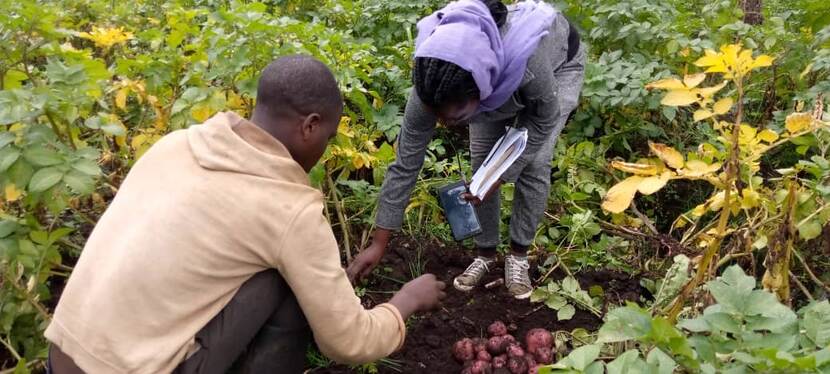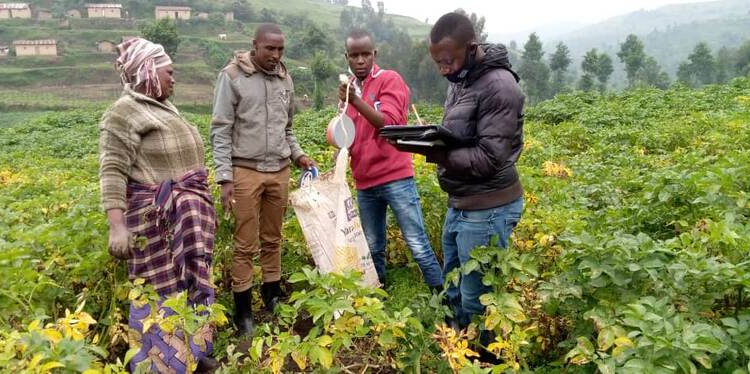Strengthening the potato chain in Uganda. That is the core goal of the SDGP program that will be implemented by a number of Dutch and Ugandan parties over the next four years. The coordination is in the hands of agricultural advisory company Delphy. “Collaboration should ensure that all companies that participate in the potato chain earn from it,” says Martine de Jong of Delphy.

Implementation of the SDGP program ( Sustainable Development Goals Partners ) should lead to more food security in the East African country. The Ministry of Foreign Affairs is the main lender of the program, RVO is responsible for management. The participating companies and organizations also make a financial contribution.
The agricultural team at the Dutch embassy in the Ugandan capital Kampala is closely involved in the potato project. Agricultural Council Frank Buizer: “The potato sector has top priority for us. This project is therefore high on the agenda. Where possible we provide support. ”
New crisps factory
The potato processing company Hollanda Fair Foods is one of the participants in the program. The company is based in Rwanda and will set up a new chips factory in Uganda as part of the program. This in collaboration with a fixed group of growers. Director Thijs Boer: “This will lead to an improvement in the economic position of the farmers. That is my main motivation. ”
The potato chain in Uganda faces a number of significant challenges. Improvements are possible in all links. The production per hectare and the quality of the potatoes can be significantly increased. Quality improvements can also be made in the field of storage, logistics and processing. In the SDGP program, chain parties work together to properly coordinate the actions to be taken.
Produce what the market demands
Demand-driven production is the starting point for chain development, says Martine de Jong. She is team leader Africa at Delphy and from that position involved in the Ugandan program. “The two potato processing companies that are active in the program know what the market is asking for. One company produces chips, the other chips. Potatoes that are processed into chips or crisps must meet certain specifications. The major challenge of this program is to support farmers so that they can meet the requirements of the processing companies and thus of the sales market. ”

Earning power in all links
Another challenge is to improve earning capacity in all links of the chain, says De Jong. “If farmers manage to produce better quality potatoes – that is, bigger, more uniform and with fewer eyes – then they should get a better price for it. The same applies to all other links in the chain. Improving profitability is the driving force behind chain development. ”
Landbouwraad Buizer: “We aim to increase the role that Dutch potato varieties can play in improving the quality of the potatoes in Uganda”.
The participants in the program will undertake a large number of activities. For example training for entrepreneurs, in collaboration with a cooperative of potato farmers. Crop rotation is an important part of this. Work will also be done on improving the storage facilities and logistics in the program area.
Hollanda Fair Foods
Part of the program is the construction of a chips factory by Hollanda Fair Foods. This company already has such a factory in Rwanda. There, 300 kilos of potatoes are processed per hour. About 400 farmers deliver their potatoes to the processor. The chips find their way in Rwanda, Uganda and Congo under the Winnaz brand name. Director Thijs Boer wants to set up a similar chain in Uganda. According to Boer, improvement of cooperation in the chain is necessary. “This collaboration should lead to quality improvement in all links. A high dry matter content and uniformity in size are essential for us as a crisp producer. That is also a constant supply. It all starts with the farmer. Training of producers is therefore an important part of this program. ”
Implementation plan
In the coming months, the participating parties will draw up an implementation plan. In this, concrete goals and measures are recorded and addressed. A baseline measurement is also performed. The chain must be operational by the end of the program period. Martine de Jong: “The program is successful if a demand-driven and sustainable production chain has been set up.”
“In the SDGP program, consultancy Delphy works together with Agriterra, Hollanda Fair Foods, Kisoro Potato Processing Industries and the farmers’ cooperatives Uganda National Seed Potato Producers Association.







